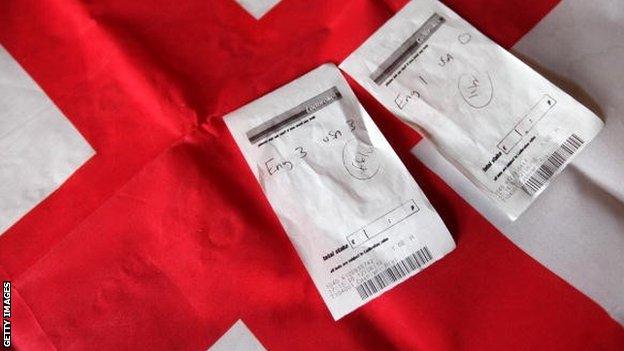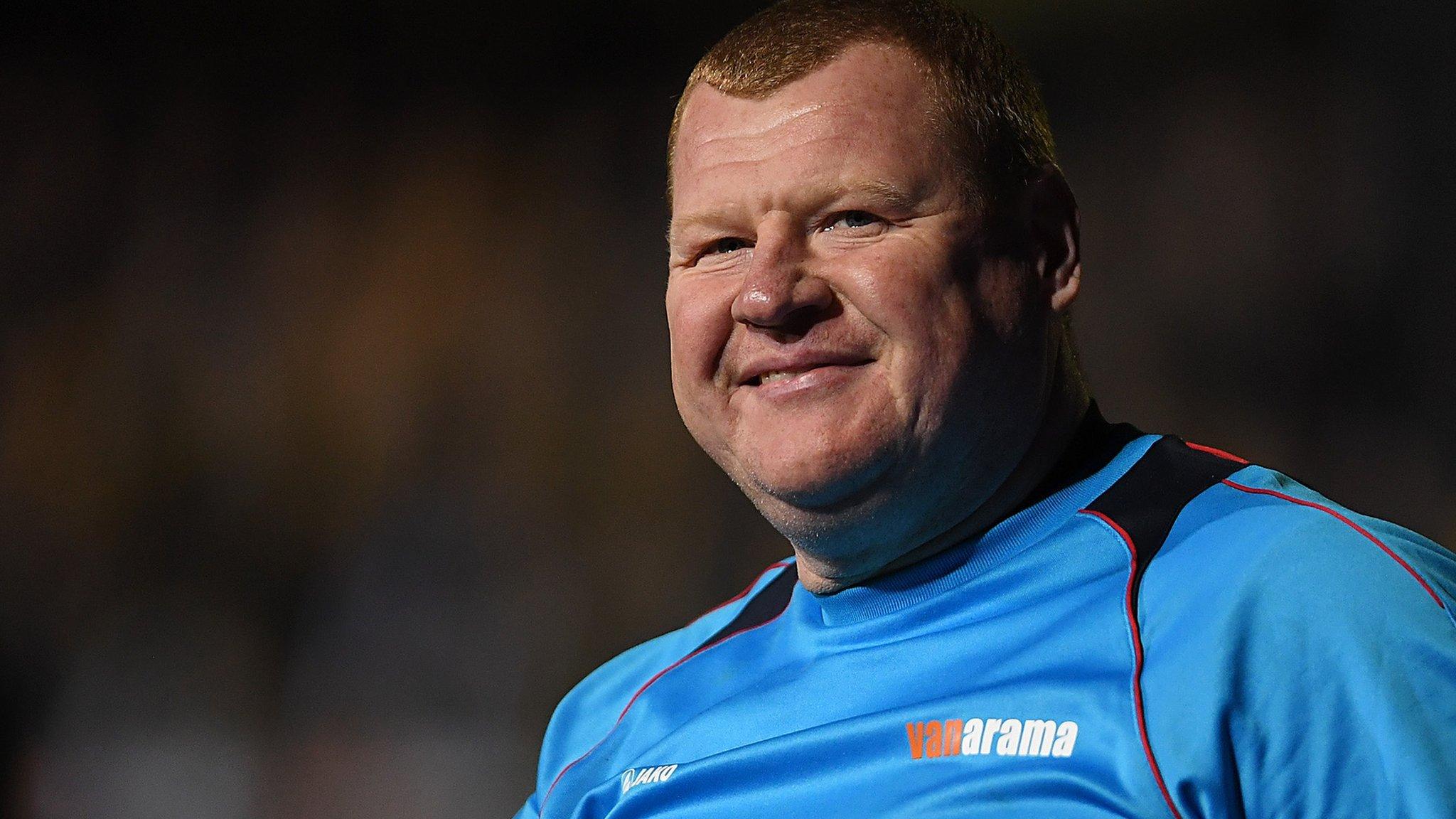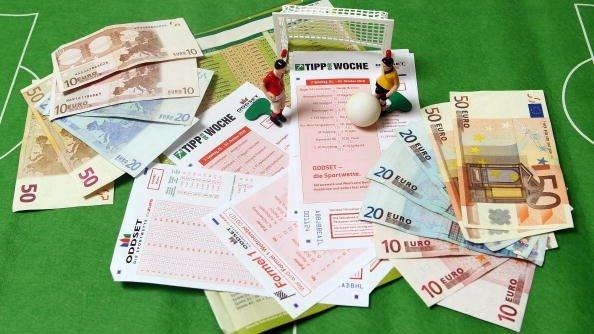Football betting: 53 reports received by Gambling Commission is 'tip of iceberg'
- Published

The betting rules prevent gambling on any football-related matters
New figures showing that 53 footballers have been reported over potential breaches of betting rules are the "tip of the iceberg", says a sport integrity expert.
Former Fifa and Interpol adviser Chris Eaton says only "naive or careless players" will be caught.
The BBC obtained the figures from the Gambling Commission's Sports Betting Intelligence Unit (SBIU).
It comes as former Sutton goalkeeper Wayne Shaw is investigated.
Shaw, who resigned from the club on Tuesday, was seen to eat a pie on the bench during Monday's FA Cup defeat by Arsenal, after a bookmaker offered odds of 8-1 that he would do so on camera.
The Gambling Commission and Football Association are now investigating if there was a breach of betting regulations.
The numbers
Following a Freedom of Information request, the SBIU said it received 53 alerts between 1 August 2014 and 23 December 2016, alleging footballers placed bets on matches.
That figure relates to uncorroborated reports, rather than confirmed instances of rule breaches.
But the Commission also told the BBC that it was looking into more alleged breaches it had identified through its own intelligence work.
The rule came into force on 1 August 2014 as an anti-corruption measure. It applies to anyone involved in football at that level - not just players.
Just a handful of players and officials have been sanctioned to date, but the figures obtained by BBC Sport reveal many more could face punishment.
Eaton said the SBIU alerts primarily concern players that use their own name and account.
They did not include:
Players that use the accounts of friend or associates
Players that directly or indirectly use under-regulated betting sites offshore
Players that directly or indirectly use illegal betting operations in the UK or betting operations offshore
"It is the best the Commission can do within its regulatory embrace," Eaton told the BBC. "But it is the tip of an iceberg that stretches well beyond the horizons of the Commission.
"In the absence of a global regulatory model, only naive or careless players will be caught in a tiny national net that is swamped in the massive global web that is sport betting."
The SBIU was established in 2012 under the umbrella of the Gambling Commission. The Commission, which regulates commercial gambling in Great Britain, said the 53 alleged offences relate to betting on any football matches, and are not necessarily specific to a player betting on their own team or a match they were involved in.
However, it refused to divulge any more information on these cases, arguing that to do so could impede its investigations.
Between October and December 2016, 38% of reports on betting activity in sport received by the Commission were football related - the largest percentage - with tennis second on 37%.
The betting rules in summary |
|---|
The FA's betting rule change applies to the top eight tiers of English football |
Players, managers, club employees and match officials are prohibited from betting on any football matter worldwide |
Bets on results, goalscorers, in-game play, player transfers, manager changes or promotions and relegations are banned |
The FA is undertaking pre-season club visits to talk players and staff through the new rules |
What cases has the SBIU worked on?
The unit worked on the case concerning Burnley midfielder Joey Barton, who received a one-match suspension for breaking Scottish Football Association rules on gambling.
The 34-year-old has also been charged with misconduct, with the Football Association alleging that the midfielder placed 1,260 bets in the past 10 years. He has admitted the charge and is awaiting a personal hearing.
It says it also supported the case involving Frome Town manager Nick Bunyard, who was given a three-year ban and fined £3,000 on 9 November, after placing 45 bets against his own teams.
Aside from the cases involving Barton, other high-profile players have also been found guilty, including:
Scottish League Two club Cowdenbeath have suspended defender Dean Brett after he admitted gambling on football matches, including betting against his own team. The 24-year-old is being investigated by the Scottish Football Association over the alleged 2,787 bets he placed.
Non-league players have also fallen foul of the rules. In March 2016, East Thurrock forward Lewis Smith was given a £23,000 fine and 17-month ban., external In July, Ashton United striker Martin Pilkington was suspended for four years for a betting breach.
'Extra money from betting is a huge carrot'
Betting 'rife' in football - banned manager
Former Frome Town boss Bunyard told BBC Points West last November that the temptation to gamble on football was too great for some footballers.
He said: "Because betting culture in football is so rife, you get dragged along because everyone is doing it. You think: 'No-one else is getting caught, so why would I?'"
Why was there a reworking of the betting rules?
The previous rules outlined that participants were prohibited from betting on a match or competition in which they were involved that season, or could influence.
Under new guidelines, gambling on any worldwide football activity was prohibited, including betting on manager appointments and player transfers.
Darren Bailey, the FA's director of football governance and regulation, said: "This betting rule change to encompass all aspects of world football provides a simple, clear and straightforward message to all participants concerned, on where the line is drawn."
Former FA general secretary Alex Horne said at the time: "We are really proud of the integrity of the game in this country and it is really important people trust... what is happening on the pitch.
"We want to keep our message as simple as possible - and it cannot be more simple that, as a player, you cannot bet at all on football."
- Published21 February 2017

- Published1 August 2014
